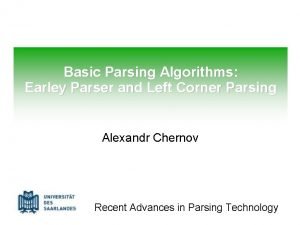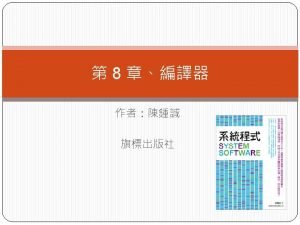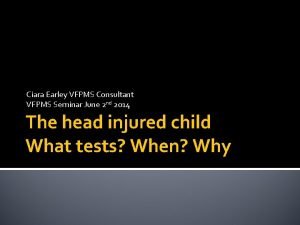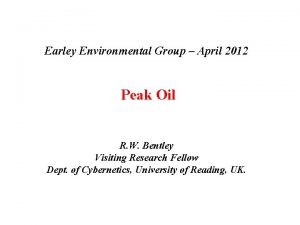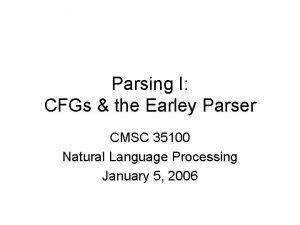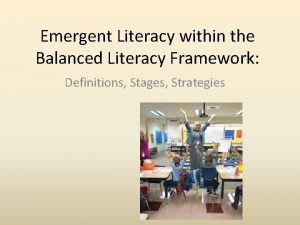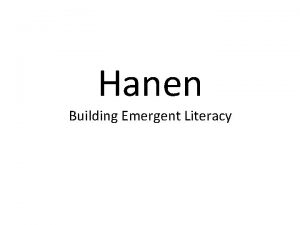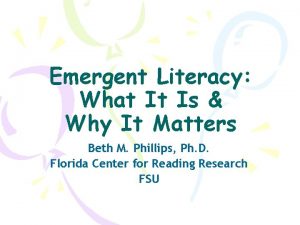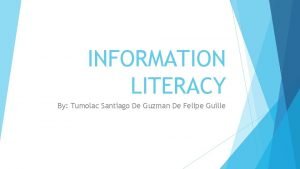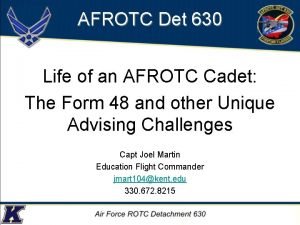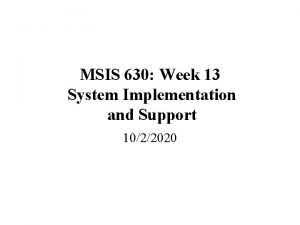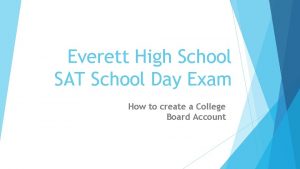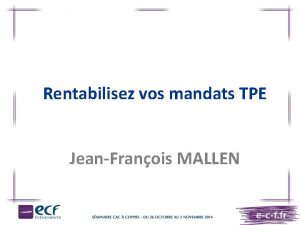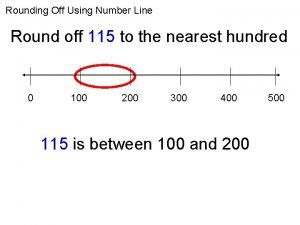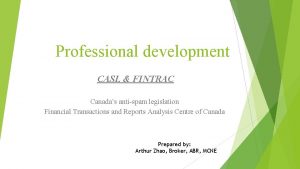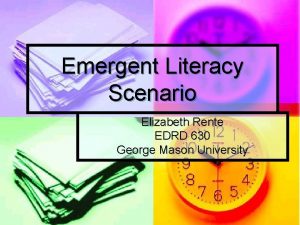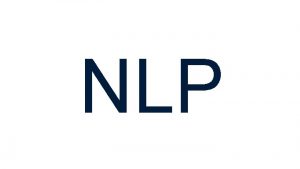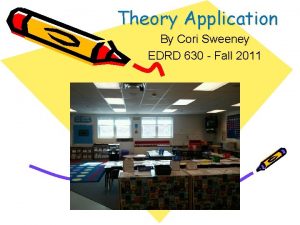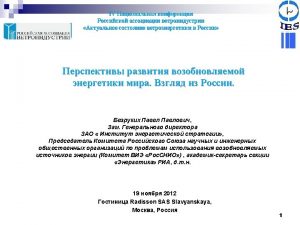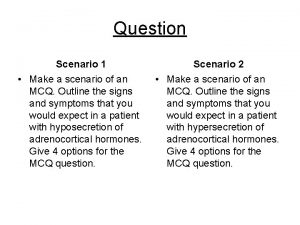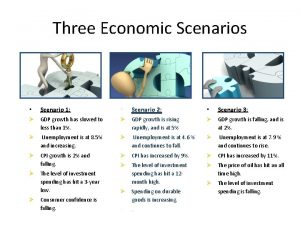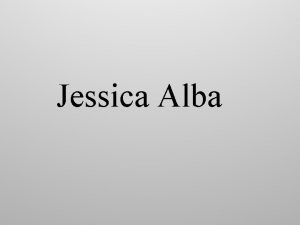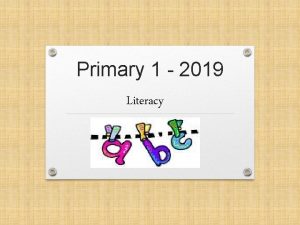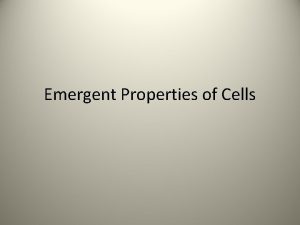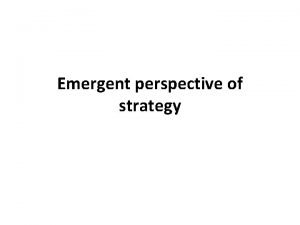Emergent Literacy Scenario Jessica Earley EDRD 630 Emergent

















- Slides: 17

Emergent Literacy Scenario Jessica Earley EDRD 630

Emergent Literacy • “As coined by Mary Clay, refers to a child’s unconventional attempts at reading, writing, and listening” (Morrow, 2009, p. g-2).

Children’s Observations of the World • Based on theory of motivation, which acknowledges the significance interest has on the learning process children have specific conceptions about the world. (Morrow, 2009)

Children’s Observations of the World • Children at this age are egocentric. • They display bossy, assertive behaviors. • Children are socially independent but often switch groups and are gender specific. • They see situations as either good or bad. • They continue to develop a sense of humor. (Morrow, 2009)

Behaviors in Emergent Literacy • Based on the constructivist theory where children actively construct knowledge through guessing, problem solving and collaboration, children demonstrate specific behaviors in emergent literacy. (Morrow, 2009)

Behaviors in Emergent Literacy • Children are able to attend to a task for a specific time frame and then return to the same task. • Inquisitive and actively explore their environment • Constantly in motion • Can control and are developing fine motor skills (Morrow, 2009)

Cognitive Processes • Based on the schema theory, children use background knowledge to construct new knowledge. (Alexander & Fox, 2004)

Cognitive Processes • Conservation of amount and length • Demonstrate interest in letters and numbers • Recognizes that meaning can be derived through print • Has a sense of personal time • Problem solvers (Morrow, 2009)

Language Processes • Based on the constructivist theory, children actively construct language through a continuous, interactive process that takes place in a social context. (Marrow, 2009)

Language Processes • • • Oral language is crucial during the early years. Make and imitate adult sounds Enjoy listening to familiar rhythms Manipulate objects Begin to associate meaning with the printed word Develop an understanding of the alphabetic principal • Discuss books • Relate books to self • Tend to over generalize language rules (Marrow, 2009)

Home-School Connection • Family literacy is a research based concept that encompasses the complex relationship the family unit has on the literacy development of children (Marrow, 2009).

Home • Research suggests that parental involvement is significant in literacy development (Marrow, 2009). • Significant differences take place between children’s literacy development during these years. • Children may or may not have access to printed materials. • Oral language differences persist. • Formal or informal exposure to literacy takes • For children who are English Language Learners, a strong literacy foundation in their first language helps these students to learn a second language more easily.

School • The role of the school is to understand students’ diverse home situations and build a curriculum based on the needs of the learners (Newman, 1998).

Based on an understanding of the five components that encompass emergent literacy, there are Important Research Based Practices that are Essential for Reading Success.

Important Research Based Practices that are Essential for Reading Success • Reading Aloud: children are actively participating while emotional secure • Developing Concepts about Print: understanding that print rather than pictures provide meaning, understanding the basic concepts about print including spaces between words, reading left to right, recognizing letter shapes and sounds • Classroom or Public Library: Children are motivated to choose books to practice the skills learned in school

Important Research Based Practices that are Essential for Reading Success • Alphabetic Principal: developing the relationship between letters and sounds • Phonemic Awareness: developing the understanding that speech can be broken into parts such as sounds, syllables and words • Vocabulary Development: building students’ knowledge of new words • Repeated Readings: re-reading familiar texts builds confidence, fluency and comprehension • Developing Concept of Word: developing the understanding that combinations of letters together form words • Word Study Instruction: • Independent Practice: providing students a time to practice the skills they have learned

References Alexander, P. A. , Fox E. (2004). A historical perspective on reading research and practice. In R. B. Ruddell & N. J. Unrau (eds). s Theoretical model and processes in reading (5 th edition) (pp. 33 -68). Newark, DE: International Reading Association. Morrow, L. M. (2009). Literacy Development in the Early Yeats: Helping Children Read and Write (6 th ed. ). New York. Pearson. National Association for the Education of Young Children (1998). Learning to read and write: Developmentally appropriate practices for young children. A joint position statement for the International Reading Association (IRA) and the National Association for the Education of Young Children.
 Emergent literacy
Emergent literacy If scenario - jessica
If scenario - jessica Left corner parser
Left corner parser Lexer parser
Lexer parser In june
In june Earley environmental group
Earley environmental group Earley parser
Earley parser Components of balanced literacy
Components of balanced literacy Emergent literacy
Emergent literacy Early emergent literacy
Early emergent literacy Disaster scenario media and information literacy
Disaster scenario media and information literacy Det 630
Det 630 630*13
630*13 866‑630‑9305.
866‑630‑9305. Nep 315
Nep 315 115 rounded to the nearest hundred
115 rounded to the nearest hundred Plate 160m series ftv
Plate 160m series ftv Form 630 orea
Form 630 orea


